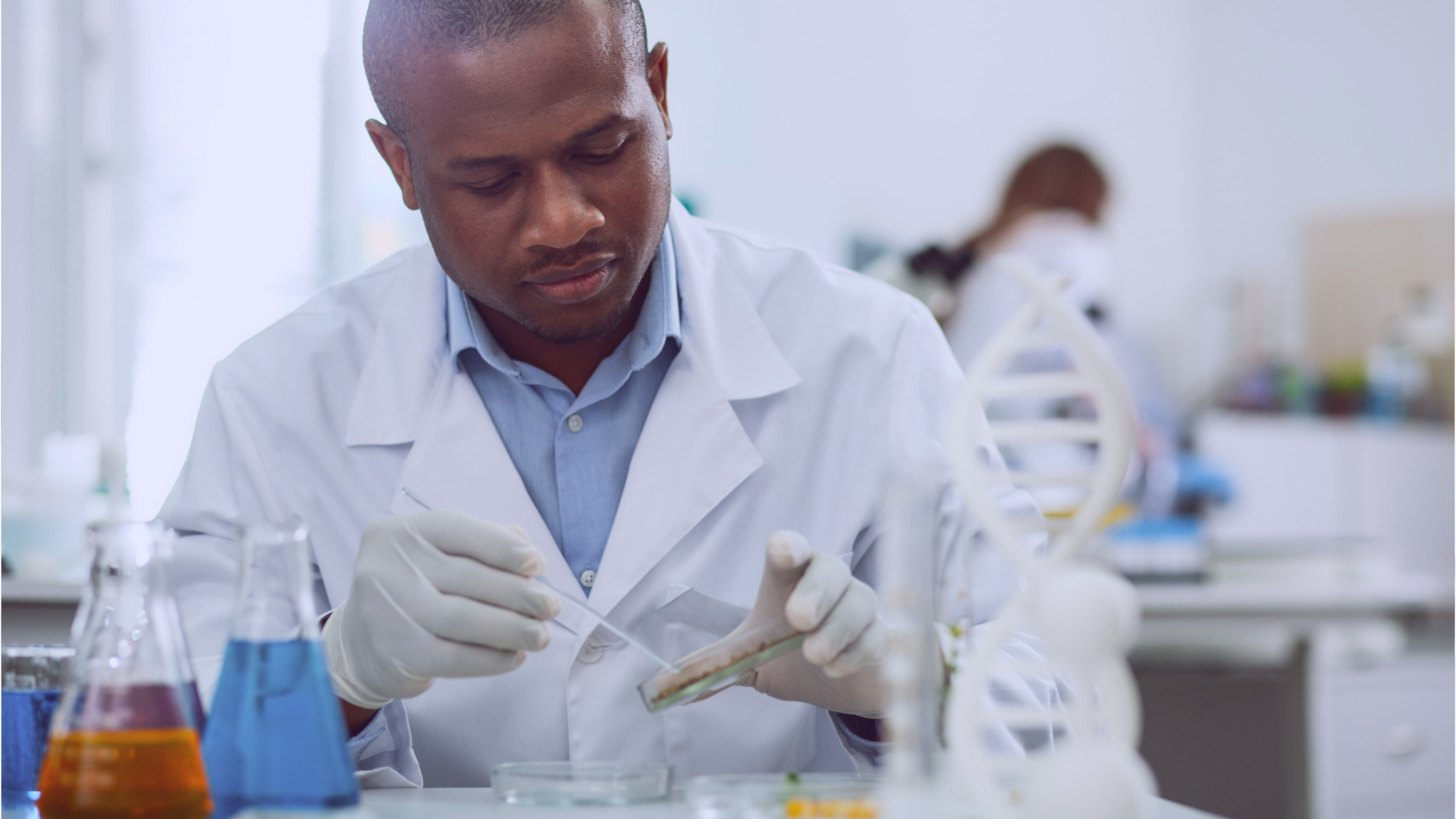Biologists
Biologist, Botanist, Fisheries and Wildlife Biologist, Scientist
 Select a military branch to see samples.
No similar titles were found.
Select a military branch to see samples.
No similar titles were found.
Entomology; Medical Service Corps Officer; Microbiology; Preventive Medicine Sciences; Veterinary Biomedical Scientist; Veterinary Corps Officer
No similar titles were found.
No similar titles were found.
Entomologist
No similar titles were found.
What they do:
Research or study basic principles of plant and animal life, such as origin, relationship, development, anatomy, and functions.
On the job, you would:
- Program and use computers to store, process, and analyze data.
- Prepare technical and research reports, such as environmental impact reports, and communicate the results to individuals in industry, government, or the general public.
- Supervise biological technicians and technologists and other scientists.
Knowledge
Math and Science
- biology
- arithmetic, algebra, geometry, calculus, or statistics
Education and Training
- teaching and course design
Arts and Humanities
- English language
Business
- management
Skills
Basic Skills
- using scientific rules and strategies to solve problems
- reading work related information
Problem Solving
- noticing a problem and figuring out the best way to solve it
People and Technology Systems
- thinking about the pros and cons of different options and picking the best one
- figuring out how a system should work and how changes in the future will affect it
Abilities
Verbal
- communicate by writing
- listen and understand what people say
Ideas and Logic
- make general rules or come up with answers from lots of detailed information
- group things in different ways
Math
- choose the right type of math to solve a problem
- add, subtract, multiply, or divide
Visual Understanding
- see hidden patterns
Personality
People interested in this work like activities that include ideas, thinking, and figuring things out.
They do well at jobs that need:
- Innovation
- Intellectual Curiosity
- Integrity
- Attention to Detail
- Dependability
- Achievement Orientation
Technology
You might use software like this on the job:
Analytical or scientific software
- Minitab
- Visual Molecular Dynamics VMD
Presentation software
- Microsoft PowerPoint
Object or component oriented development software
- Oracle Java
- Perl
Education
Education: (rated 5 of 5)
master's degree or
bachelor's degree
usually needed
bachelor's degree
usually needed
Job Outlook
Below Average
New job opportunities are less likely in the future.
Explore More
- Biological Technicians
- Geneticists
- Microbiologists
- Molecular & Cellular Biologists
- Zoologists & Wildlife Biologists
You might like a career in one of these industries:
See more details at O*NET OnLine about Biologists.





